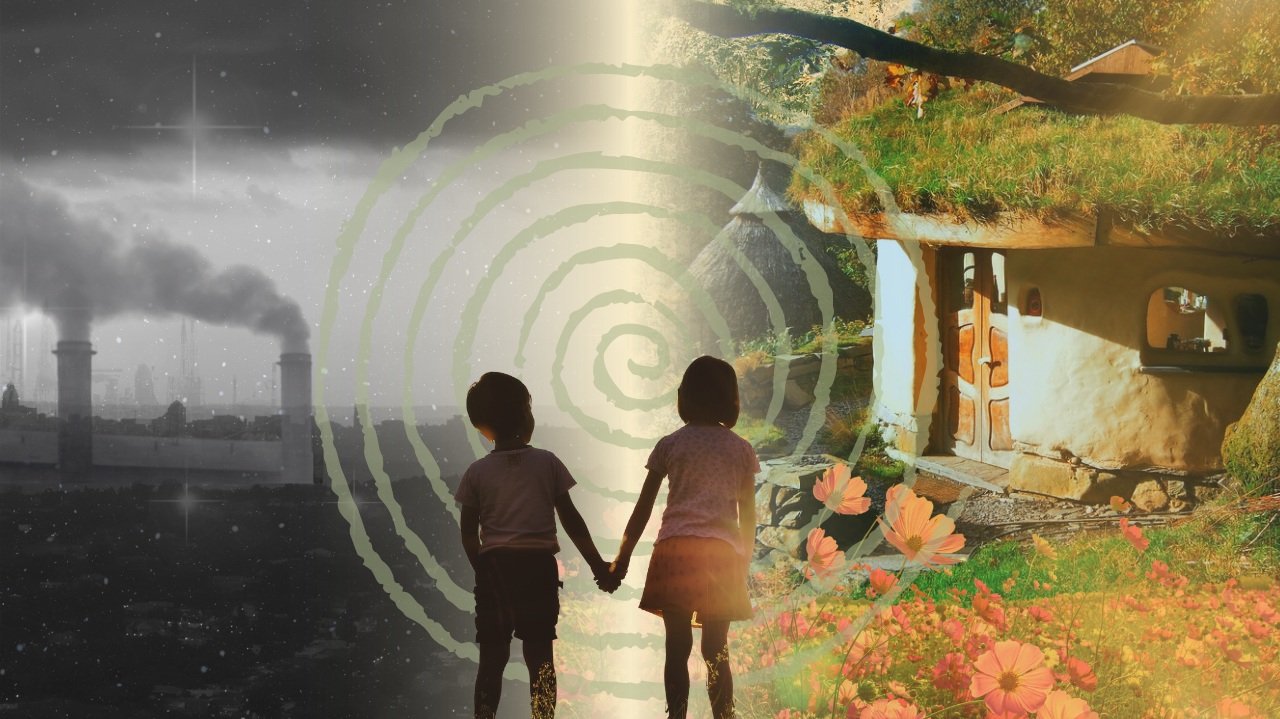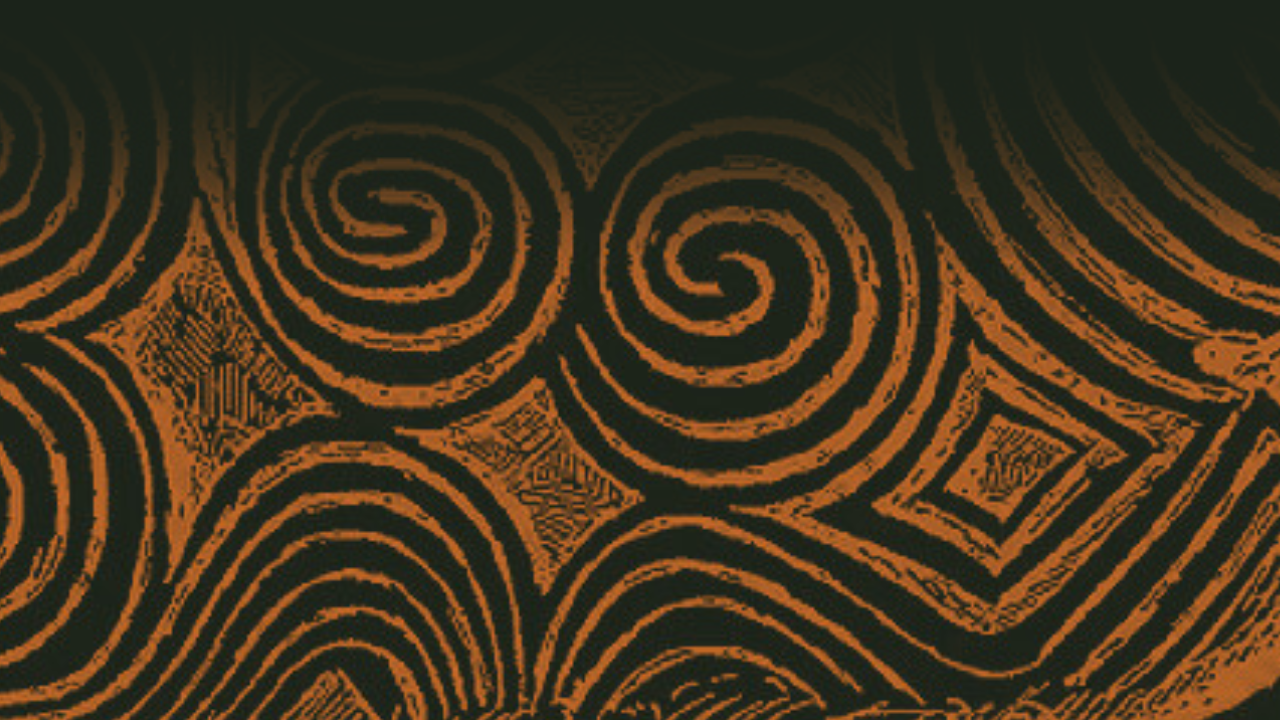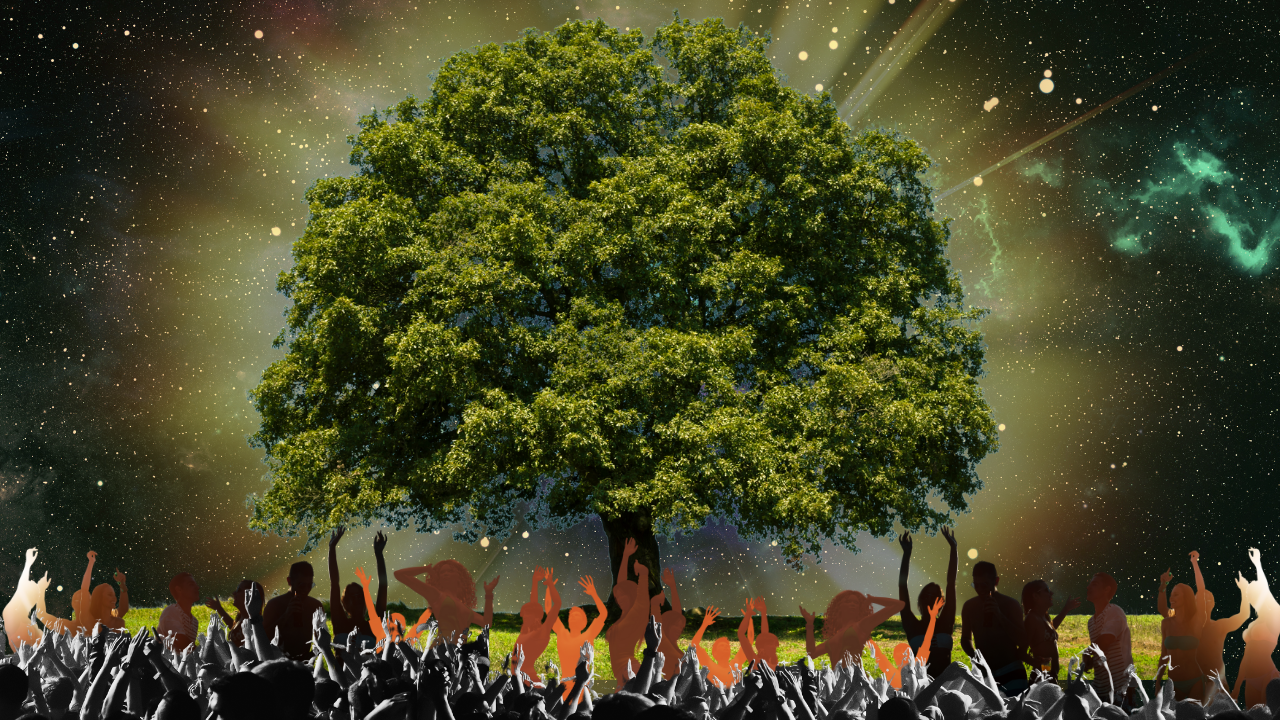
Centuries of aggressive industrial growth have ravaged our world. It’s time to choose a new trajectory.
Unless we do so, our children and grandchildren may not inherit from us a habitable world at all.

The context of our time is extreme, as Extinction Rebellion has brought clearly to mainstream awareness. We stand at a precipice, with climate chaos already upon us and ecosystem breakdown happening all around, while bombs drop, mental health plummets and the cost of living soars.
The industrial growth society has failed everyone on earth, except perhaps the most affluent 1%, and even they are not going to be immune to the effects of the collapse which now seems to be inevitable in one form or another.
And still the global North continues to extract and burn the resources of the global South, and to coat the tired myth of ‘progress’ in a thick layer of greenwash, in an effort to maintain economic growth at all costs.
It’s against this grim background that we rise up and claim the right to explore alternative ways of living here at the end of the world as we know it.

On the bright side, we still live in a time of great freedom and abundance...
… and increasing numbers of us are waking up to the urgency of our situation and are seeking genuine alternatives.
But perhaps most encouraging is that the very shifts we need to make now are those that offer us the best chance of a high quality of life…
…shifts we would want to be making anyway, regardless of impending biosphere and civilisational collapse:
* Reduction of mindless consumption
* Re-localisation of basic supply chains
* Restoration of ecosystems
* Redistribution of wealth
* Re-connection to community
* Re-connection to nature
* Reclamation of politics in service of people
* Renewed reverence for life
We can, right now, choose all of these things in microcosm, and thereby become a powerful seed for the change we need to see in the world.

Let’s choose to reduce our reliance on destructive industrial systems, and restore our entanglement with each other and the living earth.

But we need to acknowledge that the current global situation has deep roots:
Thousands of years of patriarchy with its cultural myths of separation from and domination over nature and other…
500 years of relentless colonial expansion…
300 years of aggressive industrialisation…
Massive un-healed cultural trauma from the two world wars…
40 years of concerted neoliberal assault on the social, political and economic fabric of the world…
The hijacking and weaponisation of the internet as a medium of radical globalisation.
It’s hard to underestimate the extent of the combined forces driving our world towards the abyss.
And yet…

It’s always worth remembering that the vast majority of humans on the planet want a bright future for themselves, their families, and the wider community of life.
And also that both nature and the human spirit are incredibly resilient, with an almost magical ability to bounce back from the brink of devastation.
A lot of healing is still possible, and with it deep transformation.
But the first step is to fully acknowledge the situation we are in, and to let go of the dangers of bland denial, spiritual bypassing, and techno-optimism – the vague hope that some form of technological innovation will save us from ourselves.
Only when we do so can we accept the need for some form of radical action, break free from the spell of business-as-usual normality and the chains of inertia it binds us with, and embrace the actual opportunities that exist right now for responsible, beautiful, and genuinely sustainable living.

Cracks
As the forests burn and the bombs fall and the reefs die while the corporations prosper and the greenwash flows like toxic honey, our hearts wither amidst so much needless destruction, and our spirits fade amidst such widespread injustice, and our bodies recoil in the absence of textured ground — the real, the sacred.
But within this arid wasteland cracks appear, cracks in which moisture gathers, and from which arise songs calling us home — home to a place we perhaps no longer know but which our bodies remember, and our hearts yearn for, and our spirits recognise from afar.
It’s a place of connection, of quiet beauty and of slow living, a place of birdsong and the sound of soft rain on leaves, a place for the giving of those gifts with which we are laden and which un-given become our burden.
So we too gather like water in the cracks, and we listen to the songs of our hearts, and we become songs ourselves, and we prepare to help make real what our spirits see coming from afar over the storm-tossed horizon, and through the strange distances within:
We prepare to come home.

